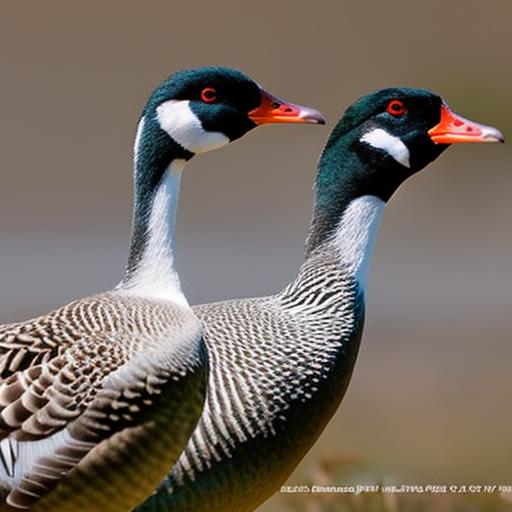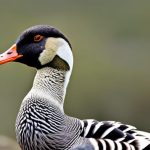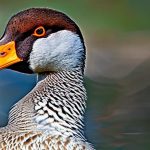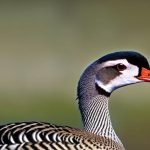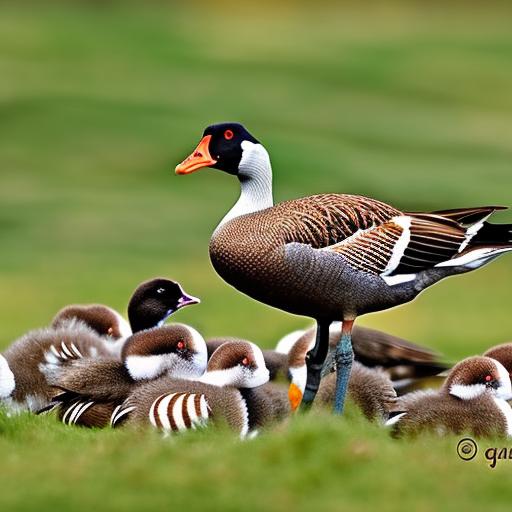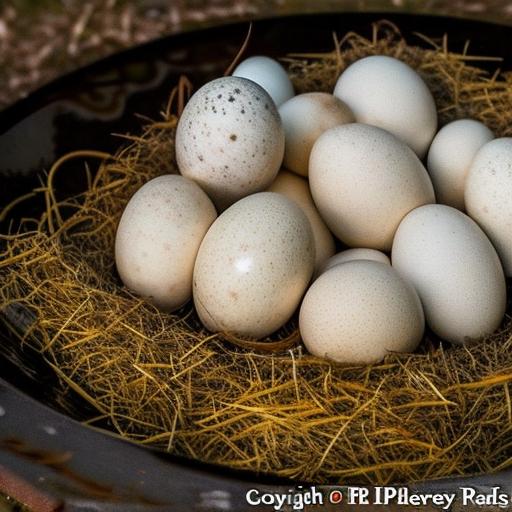Geese are a type of waterfowl that have been domesticated for thousands of years. They are known for their distinctive honking sound and their ability to adapt to various climates and environments. Geese breeds come in a wide range of sizes, colors, and temperaments, making them a versatile choice for farmers and homesteaders.
Geese play an important role in agriculture and homesteading for several reasons. Firstly, they are excellent grazers and can help control weeds and pests in fields and pastures. They also produce high-quality meat and eggs, making them a valuable source of food for many people. Additionally, geese are known for their strong maternal instincts and can be used as foster parents for other poultry species.
Key Takeaways
- Geese breeds are important for farming, homesteading, ornamental purposes, pest control, meat and egg production.
- Geese breeds can be classified as domestic or wild, with domestic breeds being more commonly used for farming and homesteading.
- The top 5 most popular geese breeds for farming and homesteading are Toulouse, Embden, Chinese, African, and Sebastopol.
- Lesser-known geese breeds include the Pilgrim, American Buff, and Roman Tufted, among others.
- Geese breeds can be chosen based on factors such as temperament, size, egg or meat production, and intended use.
Understanding the Classification of Geese Breeds: Domestic vs. Wild
There are two main classifications of geese breeds: domestic and wild. Domestic geese have been selectively bred over generations for specific traits such as size, meat production, or egg-laying ability. They are typically more docile and easier to handle than their wild counterparts.
Wild geese, on the other hand, have not been domesticated and retain their natural instincts and behaviors. They are often more wary of humans and may be more difficult to handle or train. However, wild geese can still be useful in certain situations, such as for pest control or conservation efforts.
The choice between domestic and wild geese depends on the specific needs and goals of the farmer or homesteader. Domestic geese are generally preferred for their predictable behavior and specialized traits, while wild geese may be better suited for specific tasks or conservation purposes.
The Top 5 Most Popular Geese Breeds for Farming and Homesteading
1. Toulouse Geese: Toulouse geese are one of the largest domestic geese breeds, known for their size and meat production. They have a calm and friendly temperament, making them easy to handle. However, their large size also means they require more space and may not be suitable for smaller properties.
2. Embden Geese: Embden geese are another popular choice for meat production. They are slightly smaller than Toulouse geese but still have good meat quality. They have a white plumage and a docile temperament, making them a popular choice for both commercial farms and backyard homesteads.
3. Chinese Geese: Chinese geese are known for their distinctive knob on their beak and their loud honking sound. They are smaller in size compared to Toulouse and Embden geese but are still valued for their meat production. Chinese geese are also good egg layers, making them a versatile choice for both meat and egg production.
4. African Geese: African geese are a large breed known for their excellent egg-laying ability. They can lay up to 50-60 eggs per year, making them a valuable addition to any homestead. African geese are also good grazers and can help control weeds and pests in the pasture.
5. Pilgrim Geese: Pilgrim geese are a unique breed that is known for their sex-linked feather coloration. This means that male and female Pilgrim geese can be easily distinguished by their plumage, making them a popular choice for those who want to selectively breed their geese. They are also good grazers and have a calm temperament.
Lesser-Known Geese Breeds: Exploring Rare and Exotic Varieties
While the previously mentioned breeds are the most popular choices for farming and homesteading, there are also several lesser-known geese breeds that are worth exploring.
1. Sebastopol Geese: Sebastopol geese are known for their unique curly feathers, which give them a distinctive appearance. They are primarily kept for ornamental purposes but can also be used for meat and egg production. Sebastopol geese require extra care and protection due to their delicate feathers.
2. Pilose Geese: Pilose geese are a rare breed that originated in China. They have long, flowing feathers that cover their legs and feet, giving them a unique and elegant appearance. Pilose geese are primarily kept for ornamental purposes but can also be used for meat and egg production.
3. Steinbacher Geese: Steinbacher geese are a German breed known for their striking coloration and distinctive feather patterns. They come in a variety of colors, including blue, lavender, and silver. Steinbacher geese are primarily kept for ornamental purposes but can also be used for meat and egg production.
4. Shetland Geese: Shetland geese are a small breed that originated in the Shetland Islands of Scotland. They have a calm temperament and are known for their excellent grazing abilities. Shetland geese are primarily kept for conservation purposes but can also be used for meat and egg production.
Geese Breeds for Ornamental Purposes: Adding Beauty to Your Property
In addition to their practical uses in farming and homesteading, geese breeds can also be kept for ornamental purposes. Ornamental geese breeds are valued for their unique appearance and can add beauty to any property.
Some popular ornamental geese breeds include:
1. Egyptian Geese: Egyptian geese are native to Africa and have a striking appearance with their brown plumage, white wing patches, and bright orange beak. They are primarily kept for their beauty but can also be used for meat and egg production.
2. Swan Geese: Swan geese are native to East Asia and have a graceful appearance similar to swans. They have a white plumage with black markings on their head and neck. Swan geese are primarily kept for their beauty but can also be used for meat and egg production.
3. Pilgrim Geese: As mentioned earlier, Pilgrim geese are known for their sex-linked feather coloration, which makes them a popular choice for ornamental purposes. Their calm temperament and distinctive appearance make them a beautiful addition to any property.
When keeping ornamental geese, it is important to provide them with a safe and secure enclosure, as they may be more vulnerable to predators due to their unique appearance.
Geese Breeds for Meat Production: Characteristics and Best Practices
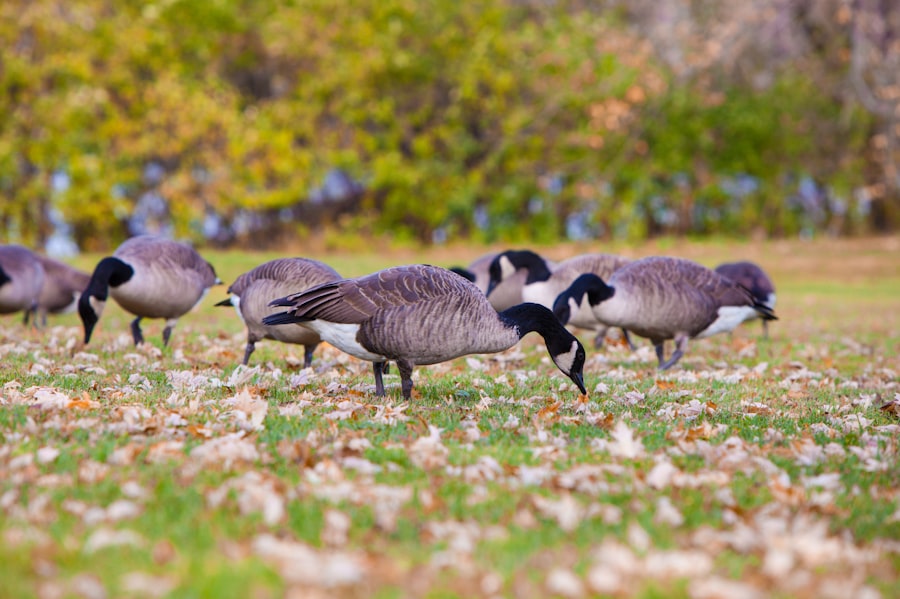
Geese breeds that are specifically bred for meat production have certain characteristics that make them ideal for this purpose.
1. Size: Meat geese breeds are typically larger in size compared to other breeds. This allows them to have a higher meat yield and makes them more suitable for commercial meat production.
2. Growth Rate: Meat geese breeds have a faster growth rate compared to other breeds. This means that they reach market weight at a younger age, allowing for quicker turnover and higher productivity.
3. Meat Quality: Meat geese breeds are known for their tender and flavorful meat. They have a good meat-to-bone ratio, making them an efficient choice for meat production.
When raising meat geese, it is important to provide them with a balanced diet that is high in protein to support their rapid growth. They should also have access to clean water at all times. Proper housing and protection from predators are also essential for the well-being of meat geese.
Geese Breeds for Egg Production: How to Raise and Care for Them
Geese breeds that are specifically bred for egg production have certain characteristics that make them ideal for this purpose.
1. Egg Laying Ability: Egg-laying geese breeds are known for their high egg production. They can lay a large number of eggs per year, making them a valuable source of fresh eggs.
2. Egg Size: Egg-laying geese breeds produce large-sized eggs, which are highly valued by consumers. These eggs are not only delicious but also have a higher nutritional value compared to smaller eggs.
3. Broodiness: Egg-laying geese breeds are typically less broody compared to other breeds. This means that they are less likely to sit on their eggs and incubate them. This can be an advantage for those who want to collect the eggs for consumption or incubation.
When raising egg-laying geese, it is important to provide them with a comfortable and secure nesting area where they can lay their eggs. They should also have access to a balanced diet that is high in calcium to support egg production. Regular collection of eggs is important to prevent them from becoming dirty or damaged.
Geese Breeds for Pest Control: Using Geese to Keep Your Property Clean and Safe
Geese can be used as an effective and natural method of pest control on farms and homesteads. Their grazing habits and loud honking sound can help deter pests and predators, making them a valuable asset for property owners.
Geese are particularly effective at controlling weeds in fields and pastures. They have a strong preference for grasses and can quickly consume large amounts of vegetation. This not only helps keep the property clean but also reduces the competition for resources between desirable plants and weeds.
In addition to weed control, geese can also help deter predators such as foxes or raccoons. Their loud honking sound serves as an alarm system, alerting other animals to the presence of potential threats. This can help protect other livestock or poultry on the property.
When using geese for pest control, it is important to provide them with adequate space to graze and roam freely. Fencing may be necessary to prevent them from wandering off or becoming prey to larger predators. Regular monitoring and observation of the geese is also important to ensure their well-being and effectiveness in pest control.
The History and Evolution of Geese Breeds: From Ancient Times to Modern-Day
The domestication of geese dates back thousands of years, with evidence of their presence in ancient Egyptian and Roman civilizations. Geese were valued for their meat, eggs, and feathers, and were often depicted in artwork and mythology.
Over time, geese breeds have been selectively bred for specific traits such as size, meat production, or egg-laying ability. This has led to the development of various breeds with distinct characteristics and appearances.
In more recent history, geese have played an important role in agriculture and homesteading. They were commonly kept on farms for their ability to control weeds and pests, as well as for their meat and eggs. Today, geese continue to be valued for their versatility and adaptability in various farming systems.
Choosing the Right Geese Breed for Your Needs: Factors to Consider and Tips for Success
When choosing a geese breed for your needs, there are several factors to consider:
1. Space: Different geese breeds have different space requirements. Larger breeds such as Toulouse or Embden geese will require more space compared to smaller breeds like Chinese or African geese. Consider the size of your property and the amount of space you can allocate for your geese.
2. Purpose: Determine the main purpose for keeping geese on your property. Are you primarily interested in meat production, egg production, pest control, or ornamental purposes? Different breeds have different strengths and characteristics that make them better suited for specific purposes.
3. Temperament: Consider the temperament of the geese breed you are interested in. Some breeds are known for being calm and docile, while others may be more aggressive or wary of humans. Choose a breed that matches your handling and management capabilities.
4. Climate: Geese breeds have different levels of cold or heat tolerance. Consider the climate of your region and choose a breed that can thrive in those conditions. Some breeds, such as Pilgrim geese, are known for their cold hardiness, while others may be more suited for warmer climates.
Tips for successfully raising and caring for geese of any breed:
– Provide them with a secure and predator-proof enclosure.
– Ensure they have access to clean water at all times.
– Feed them a balanced diet that is appropriate for their age and purpose.
– Monitor their health and behavior regularly.
– Handle them gently and provide regular socialization to ensure they are comfortable around humans.
– Provide them with ample space to graze and roam freely.
– Protect them from extreme weather conditions, such as excessive heat or cold.
– Seek advice from experienced geese breeders or farmers for specific breed-related care tips.
In conclusion, geese breeds are a versatile and valuable addition to any farm or homestead. Whether you are looking for meat production, egg-laying ability, pest control, or simply ornamental beauty, there is a geese breed that can meet your needs. By understanding the different characteristics and requirements of each breed, you can make an informed decision and ensure the success of your geese-raising venture.
If you’re interested in learning more about geese breeds, you might also find this article on “How Many Eggs Do Geese Lay?” helpful. It provides valuable information on the egg-laying habits of different geese breeds and offers insights into their reproductive patterns. Understanding the egg production of geese can be beneficial for those considering raising geese for eggs or breeding purposes. To read more about this topic, click here.
FAQs
What are geese breeds?
Geese breeds refer to the different types of geese that exist. There are over 20 breeds of geese, each with unique physical characteristics and temperaments.
What are some common geese breeds?
Some common geese breeds include the Toulouse, Embden, Chinese, African, and Canada Goose.
What is the difference between domestic and wild geese?
Domestic geese are bred and raised by humans for various purposes, such as meat, eggs, or as pets. Wild geese, on the other hand, live in their natural habitats and are not domesticated.
What are some uses for domestic geese?
Domestic geese are often raised for their meat, eggs, feathers, or as pets. They can also be used for weed control in gardens or as guard animals.
What is the lifespan of a goose?
The lifespan of a goose varies depending on the breed and living conditions. On average, geese can live up to 20 years.
What is the average size of a goose?
The average size of a goose varies depending on the breed. Some geese can weigh as little as 5 pounds, while others can weigh up to 20 pounds.
What is the temperament of geese?
Geese are known for being territorial and protective of their flock. They can be aggressive towards strangers or perceived threats, but can also be loyal and affectionate towards their owners.
Meet Walter, the feathered-friend fanatic of Florida! Nestled in the sunshine state, Walter struts through life with his feathered companions, clucking his way to happiness. With a coop that’s fancier than a five-star hotel, he’s the Don Juan of the chicken world. When he’s not teaching his hens to do the cha-cha, you’ll find him in a heated debate with his prized rooster, Sir Clucks-a-Lot. Walter’s poultry passion is no yolk; he’s the sunny-side-up guy you never knew you needed in your flock of friends!

